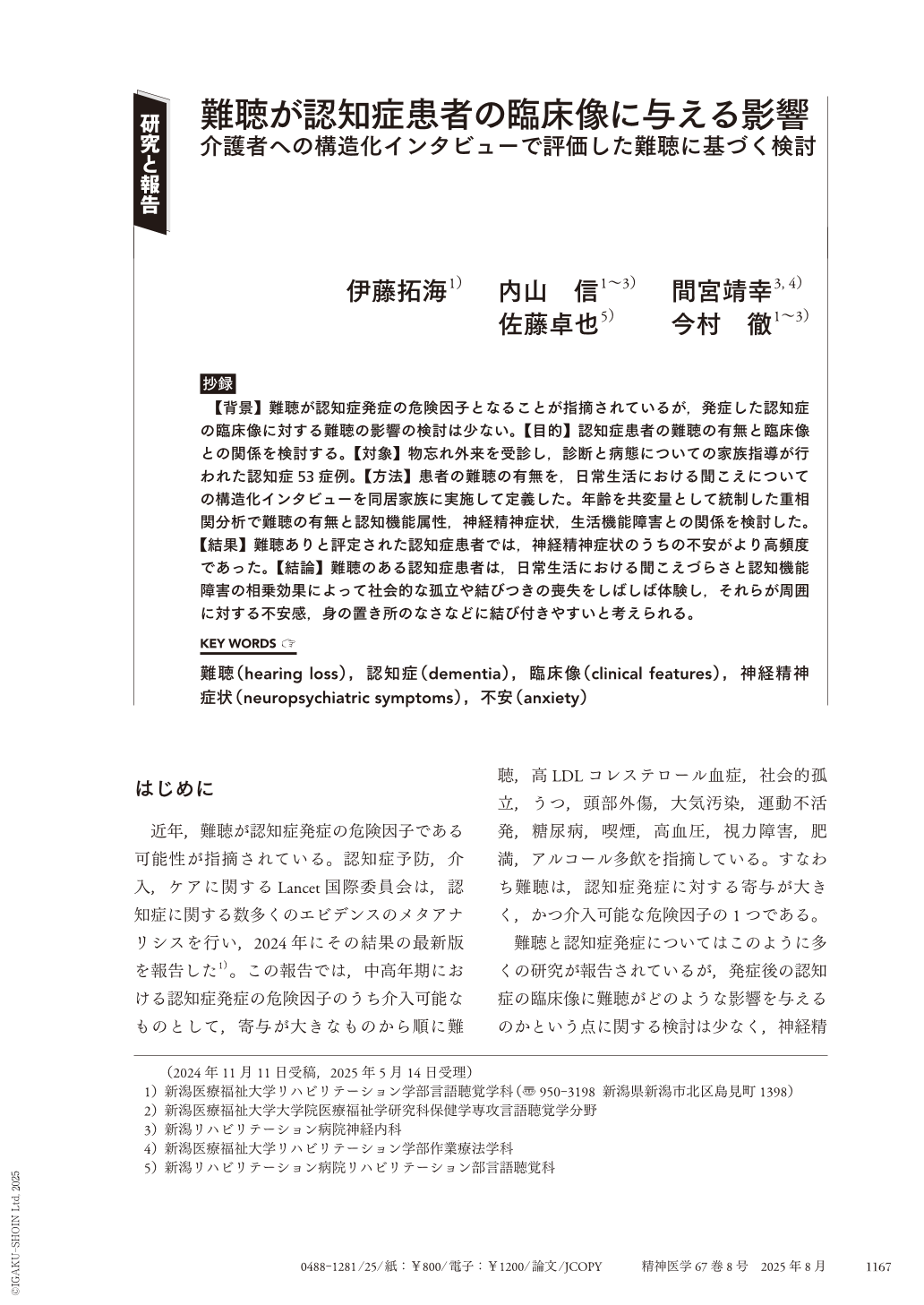Japanese
English
- 有料閲覧
- Abstract 文献概要
- 1ページ目 Look Inside
- 参考文献 Reference
抄録
【背景】難聴が認知症発症の危険因子となることが指摘されているが,発症した認知症の臨床像に対する難聴の影響の検討は少ない。【目的】認知症患者の難聴の有無と臨床像との関係を検討する。【対象】物忘れ外来を受診し,診断と病態についての家族指導が行われた認知症53症例。【方法】患者の難聴の有無を,日常生活における聞こえについての構造化インタビューを同居家族に実施して定義した。年齢を共変量として統制した重相関分析で難聴の有無と認知機能属性,神経精神症状,生活機能障害との関係を検討した。【結果】難聴ありと評定された認知症患者では,神経精神症状のうちの不安がより高頻度であった。【結論】難聴のある認知症患者は,日常生活における聞こえづらさと認知機能障害の相乗効果によって社会的な孤立や結びつきの喪失をしばしば体験し,それらが周囲に対する不安感,身の置き所のなさなどに結び付きやすいと考えられる。
Backgrounds:Hearing loss is emphasized as a risk factor of dementia, but a few studies examined the effect of hearing loss on the clinical characteristics of manifested dementia. Objective:To investigate the relations between hearing loss and cognitive, neuropsychiatric, and functional characteristics of dementia. Patients:Fifty-three community-dwelling dementia patients who presented to a memory clinic and whose family caregivers received education for dementia. Methods:Each patient's hearing status assessed using a structured caregiver interview and determined the presence or absence of hearing loss. We repeated multiple correlation analyses, controlling for age as a covariate, to examine the relationship between the presence of hearing loss and various domains of cognitive dysfunction, neuropsychiatric symptoms, and functional impairment. Results:Patients with hearing loss were more likely to be rated positively on the anxiety sub-item in the Neuropsychiatric Inventory. Conclusion:Dementia patients with hearing loss are more likely to experience social isolation and loss of social ties due to the synergistic effects of hearing loss and cognitive dysfunction in daily life. These experiences may lead to anxiety about their surroundings and a feeling of being out of place. Future researches are recommended for each degenerative and other types of dementias.

Copyright © 2025, Igaku-Shoin Ltd. All rights reserved.


